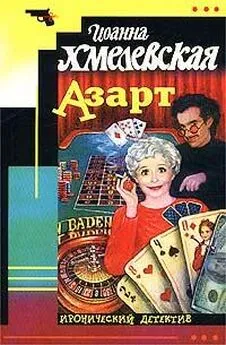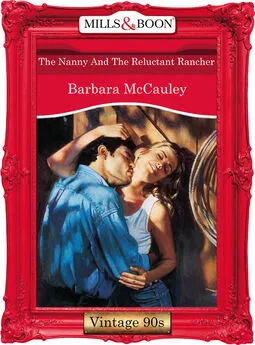Barbara Hambly - Dead water
- Название:Dead water
- Автор:
- Жанр:
- Издательство:неизвестно
- Год:неизвестен
- ISBN:нет данных
- Рейтинг:
- Избранное:Добавить в избранное
-
Отзывы:
-
Ваша оценка:
Barbara Hambly - Dead water краткое содержание
Dead water - читать онлайн бесплатно полную версию (весь текст целиком)
Интервал:
Закладка:
There was boisterous laughter although personally January would have bet his money, in single combat, on his quiet-voiced Kentucky farm-boy friend Abishag Shaw against the cocky young planter, Colonel or no. Looking around the room, he spotted Hannibal at one of the tables with Oliver Weems, a cribbage-board laid out between them. At the other table Davis and one of the several planters on board—Roberson, January recalled his name was—had a game of whist in progress with a stout gray-haired Northerner whose French valet was sleeping on deck, the fourth player being a smooth, dark-haired man of undistinguished appearance whom January guessed was a professional cardsharp.
Ned Gleet—sitting next to Hannibal—boomed genially as January entered, “Now, there's a boy does any man's heart good to see!” Despite the cheer in his voice, his eyes were as expressionless as a china doll's. “Look at those shoulders on him, gentlemen, and tell me it isn't a crime to waste a boy like that folding cravats when he could be working in the fields with the best of them!”
The young planter—Purlie, January recalled his name was—to whom Gleet had shown the slave-girl that morning was absent; January had not seen him all morning. As he'd come up he'd seen that the girl, too, was gone from the promenade, where she had been chained.
Hannibal replied very mildly, “At least it isn't a crime in the State of Louisiana, and I happen to like the way Ben folds my cravats.”
Weems said nothing, but looked at Gleet as if a cat had deposited a long-dead gopher on the chair where the slave-dealer sat.
“Hell!” Gleet spit a long streak of brown juice at the cuspidor. “If it's a valet you want, my friend, they're a dime a dozen in Louisville!” He draped a friendly arm around Hannibal's thin shoulders, and with the other hand poured three generous fingers of whiskey from his flask into the fiddler's empty glass with the clear intention of loosening up his mark's sales resistance, not having the slightest notion of how much liquor Hannibal could put away. “Kentucky's creeping with 'em! You can pick one up for six hundred dollars, and you'll have made a clear three hundred profit with that boy of yours.”
“Sir, I find your manner of speech completely offensive!” A young gentleman rose from the armchair, where he'd been reading, dark-haired, blue-eyed, and strikingly handsome, with skin as flawless as a girl's. “Have you no shame? You are a kidnapper, sir, a vile trafficker in human souls and human bodies, and you, sir”—he rounded on Hannibal—“are as morally degenerate as he, for participating in the putrid institution of human slavery!”
Whipping a sheaf of folded broadsides from his coat pocket, he thrust one into Hannibal's hands, and another into Gleet's. “How can you face your wife and your dear little children with the moral slime of bondage dripping from your hands?”
“Now, Mr. Quince . . .” A cadaverously thin gentleman in a faded-blue pilot's jacket detached himself from the bar and moved to intercept the indignant speaker even as the handsome young Mr. Quince was digging in his pockets for more tracts.
Gleet bellowed with laughter, and plucked the cigar from Weems's fingers to light the tract he'd been given. January hardly needed to see the masthead, The Liberator, to know what it was. “You know what I have to say to you, Quince, and to all Abolitionists like you?”
Quince, with an indignant gasp, tried to snatch the burning tract from Gleet's hands. The slave-dealer whooped harder and held it away from him, like a man teasing a child, which, despite his square-chinned handsomeness, the abolitionist Quince somehow resembled. “Let it be,” said the thin gentleman in the oddly rangeless voice that January identified at once as one symptom of chronic palsy.
“What's the matter?” Kevin Molloy appeared in the doorway, crossed the room to the bar. “You're never an Abolitionist, too, Lundy? A bit of the water of life, Nick,” he added to the barkeep. And to the emaciated, faintly-trembling Lundy, “I guess you've got to have something to keep your mind occupied, now that you're not up to runnin' a boat anymore.”
“When I was piloting, Mr. Molloy,” responded Lundy, “it wasn't my custom to spend my time in the Saloon.”
“What, on this stretch of the river?” Molloy hooted. “'Tis twenty feet of bottom we've got and not a bar in sight till we get to Red Church. I could take a wee nap and nothing would come of it! You're an old woman, Lundy,” he added. “'Tis a damn shame. You used to be good.”
And he swaggered from the room, even as Mr. Quince took the glass from Hannibal's hand and replaced it with another tract, entitled “The Devil's Brew.”
“I'm afraid my manservant is not for sale, Mr. Gleet,” said Hannibal as Quince poured the contents of the glass into the spittoon near the table. “Although I do appreciate your offer.”
“A thousand, then.” Gleet waved to January, signaling him over. “A thousand, and that leaves me with barely any profit. What the hell you need a big buck like that for a valet for, anyway? He's got field-hand written all over him.”
“He has suffering written all over him,” thundered young Quince, stepping between Gleet and January without so much as a glance at January, all his attention on Gleet. “Suffering, and the crying injustices of the system!”
“Get him out of here,” sighed Gleet, “'fore I swat him like a fly.”
And as the former pilot Lundy, moving with painful and shaky step, urged the fulminating young Abolitionist toward the door, Gleet looked around at the other men in the Saloon. “What's the matter, Weems?” he demanded. “You an Abolitionist, too? A man's got a right to make a living. You can't tell me a boy like that”—he waved in January's direction—“would have the slightest idea what to do with freedom if he had it.”
“Good Heavens, no!” spoke up the stout Northerner in the nasal English of Massachusetts. “Until such time as the government is able to re-settle the Negroes in Africa, where they are best suited to live, it would be an act of cruelty to turn them loose—not to speak of the effect it would have on honest white workingmen in the East.” He belched, and bit with great satisfaction into the oyster sandwich in his other hand. Butter glistened as it ran down his chin.
“Gleet spent the rest of the afternoon trying to get me sufficiently foxed to agree to sell.” Hannibal sank unsteadily onto the bunk of his stateroom a few hours later and closed his eyes. “Thank God there was a spittoon under the table. It broke my heart to dump that much good whiskey—I must have poured off a pint of it, besides all I drank—but enough is enough. I beg you, if you love me, get me a cup of coffee . . . quietly .”
“Yes, sir.” January threw his humblest accents into his voice as he rose from the chair in the stateroom, where he'd taken refuge. He'd dozed a little, and listened to the voices of the cabin passengers and their servants as they passed on the promenade, in between perusal of the assorted vegetarian, Abolitionist, temperance, Thompsonian, women's suffrage, and Swedenborgian tracts that someone—presumably Mr. Quince—had thrust under the stateroom door. “Shall I bring you some supper with that, sir? Pickled pork and cabbage, maybe, with some good fortifying gravy . . . ?”
The pillow smacked against the doorframe as January ducked outside.
The coffee seemed to revive Hannibal, however, and he listened with interest to January's account of Queen Régine. “If Her Majesty's on board, she'll be restricted to the main deck,” pointed out the fiddler. “And of that, pretty much, to the stern, if not by the deck-hands themselves, by that squad of Kentucky ruffians that's taking deck-passage on the bow-deck. If she wants to expose you as a fraud—does she even speak English?—she may have a hard time finding anyone to believe her. As for getting in to see the purser's records, that may prove impossible to do unseen. The office door is right on the path of the wood-crews, and the steps down to the hold are right beside it. By all accounts the steward Thucydides is as incorruptible as they come. . . .”
“I was afraid of that.”
“But all is not lost, nor even mislaid. I've had a word with Byrne, the genial stone-faced gentleman you saw playing whist with Messrs. Davis, Roberson, and that Massachusetts oyster-fiend Dodd.”
“Byrne knows you?” asked January, alarmed.
“He knows me, but he'll keep his mouth shut, the same way I'll keep my mouth shut about him being a professional cardsharp and not a dry-goods importer, as he's told all those respectable and well-heeled gentlemen he is.” Hannibal drained his coffee-cup and leaned back on the bunk, still looking rather greenish around the edges. “He certainly has no idea you are anyone but who I say you are—a slave I managed to buy with some windfall cash. If he had any suspicion, he'd consider it not his business anyway—he's a remarkably single-minded man about anything that doesn't concern cards. But Byrne and I have worked together before. Now that Weems has accepted me as a reliable partner—it went to my heart to let him win at cribbage—I should be able to draw him into a game of whist tonight. Between the two of us, Byrne and I should be able to strip him of whatever cash he has in hand for the journey. If Weems wants more, he'll have to get it from his trunk in the hold.”
“Will he play?” January recalled Granville's words on the subject, but Hannibal only raised his eyebrows.
“My dear Benjamin, the man spent two hours this afternoon practically hugging himself for taking thirty dollars off me at cribbage.” He closed his eyes and settled back on his bunk again. “Even splitting the take with Byrne, I think we both deserve more than what Granville's paying us. And as I said last night, there are specific instructions in the Bible about oxen, muzzles, and corn.”
Luncheon on the Silver Moon was laid out for the gentlemen as a buffet in the Main Saloon—cold meats, cheeses, bread, and fruit—and served to the ladies in their own small dining-room at the bow. The sexes joined for dinner, however, at trestle tables set up in the Main Saloon and presided over by the owner Mr. Tredgold and his stout, raucous-voiced wife. Afterwards, under Thu's efficient supervision, waiters and porters cleared the tables away, and as the steward had urged, Hannibal played his violin for the company and January a guitar, and there was dancing and parlor-games.
Needless to say, neither the immigrant families who were dossing down on the bow-deck nor the wild Kentucky rivermen who shared the space with them were invited to join in the revels. Mrs. Tredgold insisted on singing and required her two children, eight-year-old Melissa and six-year-old Neil, also to sing duets (“Now, aren't they the most adorable children you've ever seen?”) Mrs. Roberson and her younger daughter, sixteen-year-old Dorothea, read a scene from Much Ado About Nothing, which the extremely elegant Mrs. Fischer declared compared favorably to the version she had seen at Covent Garden in London.
“And if you'll believe that,” murmured Hannibal, eyeing the majestic brunette, “might I interest you in some stock I have in a diamond-mine in the Nebraska Territory?”
It was Mrs. Fischer, January noticed, who took it on herself to draw pretty Dorothea Roberson away from Molloy's fair-haired inamorata Miss Skippen, and to whisper something to Mrs. Roberson and Mrs. Tredgold that apparently sealed that sprightly young lady's fate. By the time the ladies retreated to their own parlor again at ten—accompanied by Mr. Quince, who proceeded to lecture them on the Grecian System of Round Dancing and the evils of alcohol—there was a decided space between Miss Skippen and all the rest.
Читать дальшеИнтервал:
Закладка:








